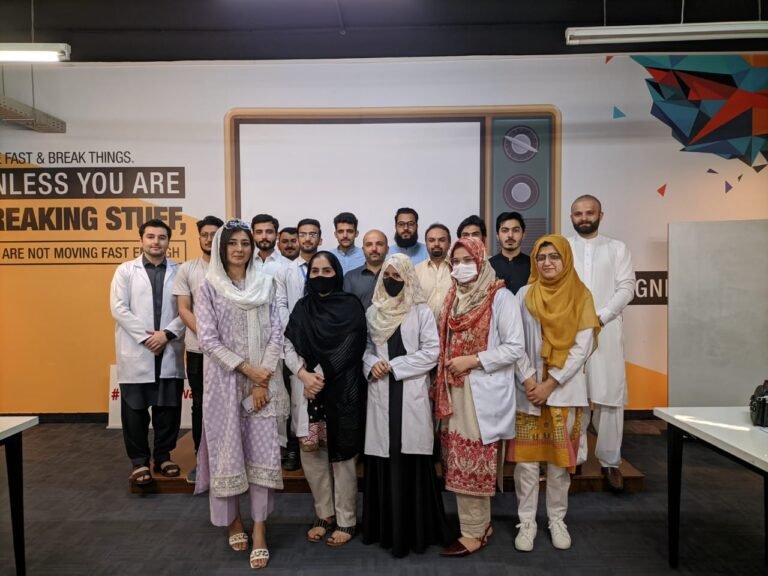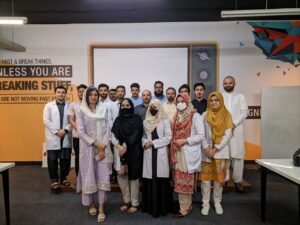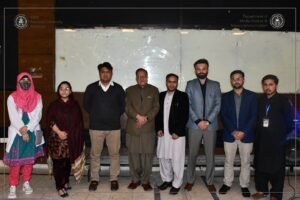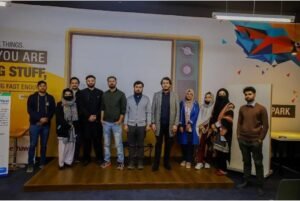HealthNest recently hosted a one-day workshop on Cardiac Rehabilitation at the National Incubation Centre, Peshawar, Khyber-Pakhtunkhwa bringing together medical students and healthcare professionals to learn about the latest techniques and best practices in the field. The workshop aimed to provide a comprehensive overview of the principles and practices of cardiac rehabilitation, equipping participants with the knowledge and skills they need to make a positive impact in the lives of cardiac patients.
Workshop Guide:
- Understanding the Importance of Cardiac Rehabilitation.
- Latest Research on Exercise and Cardiac Rehabilitation.
- Anatomy and physiology.
- Pathologies and interventions.
- Diagnostic test and role of PT.
- Role of PT in ICU and ward.
- Hands-on Experience in Designing and Implementing Cardiac Rehabilitation Programs.
- Recap of the Workshop.
Understanding the Importance of Cardiac Rehabilitation:
The workshop started with an introduction to cardiac rehabilitation and its importance in the overall treatment of cardiac patients. The speaker Dr. Maira haseen (PT) emphasized the key components of cardiac rehabilitation, including exercise, education, and psychological support, and discussed their role in improving patients’ quality of life and reducing the risk of further cardiac events.

Latest Research on Exercise and Cardiac Rehabilitation:
Throughout the day, participants learned about the latest research on exercise and cardiac rehabilitation. Dr. Maira haseen (PT) discussed the benefits of high-intensity interval training (HIIT) and the role of resistance training in improving cardiac function. They also shared insights on how to personalize exercise plans for patients based on their fitness levels and specific needs.
The Role of Nutrition in Cardiac Rehabilitation:
Dr. Maira haseen (PT) highlighted the importance of nutrition in cardiac rehabilitation, emphasizing the benefits of a balanced diet and the risks of fad diets and supplements. Participants learned about the key nutrients needed for cardiac patients, and how to incorporate them into their meal plans.
Hands-on Experience in Designing and Implementing Cardiac Rehabilitation Programs:
One of the highlights of the workshop was the practical session, where participants got hands-on experience in designing and implementing cardiac rehabilitation programs for patients. They learned how to assess patients’ fitness levels, design personalized treatment and exercise for patients. The practical session also included a demonstration of various exercise equipment commonly used in cardiac rehabilitation.


Recap of the Workshop:
The workshop took place in the city of Peshawar, Khyber-Pakhtunkhwa, at HealthNest, National incubation, joined by Mr. Adnan Sagheer (Ex Operation Manager ICC) & Director HealthNest along with Dr. Waqas Ahmed, Manager Rehab Department Peshawar Institute of Cardiology & Mr. Zubair Khattak, Assistant Director, District Youth Affairs, and it provided a comprehensive overview of cardiac rehabilitation, covering topics such as the importance of exercise, Anatomy and physiology, Pathologies and interventions, Diagnostic test and role of PT, Role of PT in ICU and ward, Prevention and psychological support in the treatment of cardiac patients. The practical session gave participants hands-on experience in designing and implementing personalized rehabilitation programs for patients, while the latest research on exercise and nutrition provided insights into how to optimize the effectiveness of these programs. Overall, the workshop was an invaluable opportunity for medical students and healthcare professionals to learn about the latest techniques and best practices in cardiac rehabilitation.
In addition to the valuable knowledge and practical experience gained at the workshop, HealthNest also provided participants with certificates of completion, awarded by Chief guest Dr. Altaf Ur Rehman. These certificates are a testament to the participants’ dedication to improving their knowledge and skills in cardiac rehabilitation, and can be a valuable addition to their resumes or professional portfolios. The certificates also demonstrate HealthNest’s commitment to improving healthcare education and empowering the next generation of healthcare professionals.

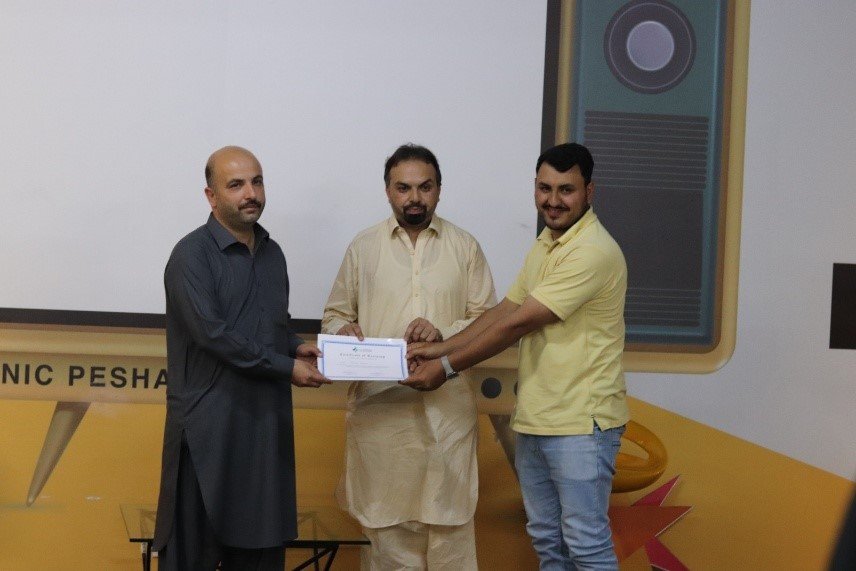
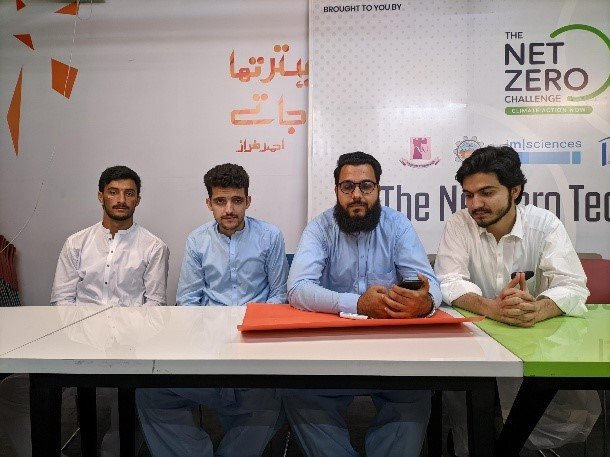
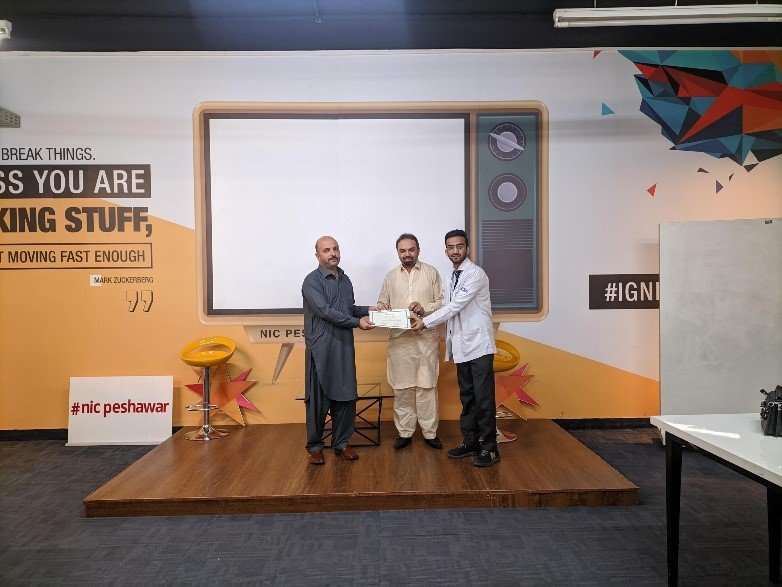
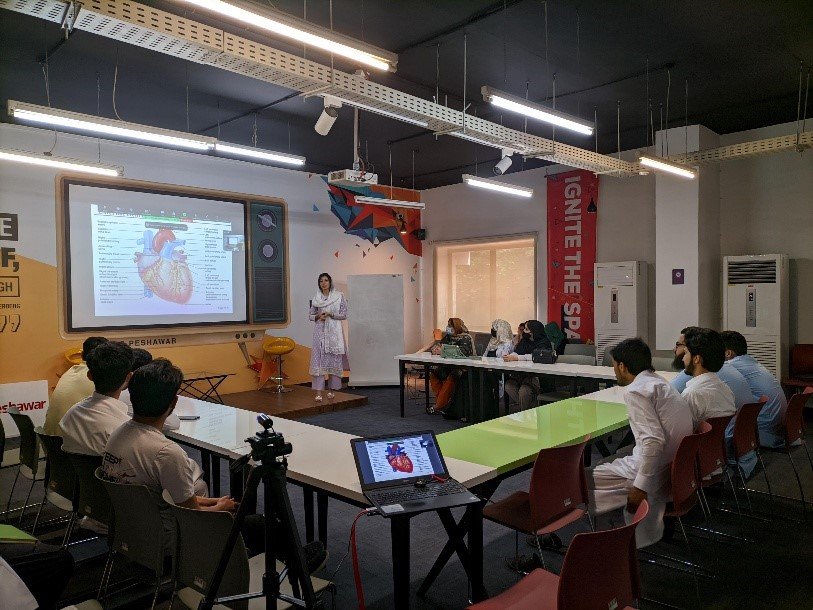
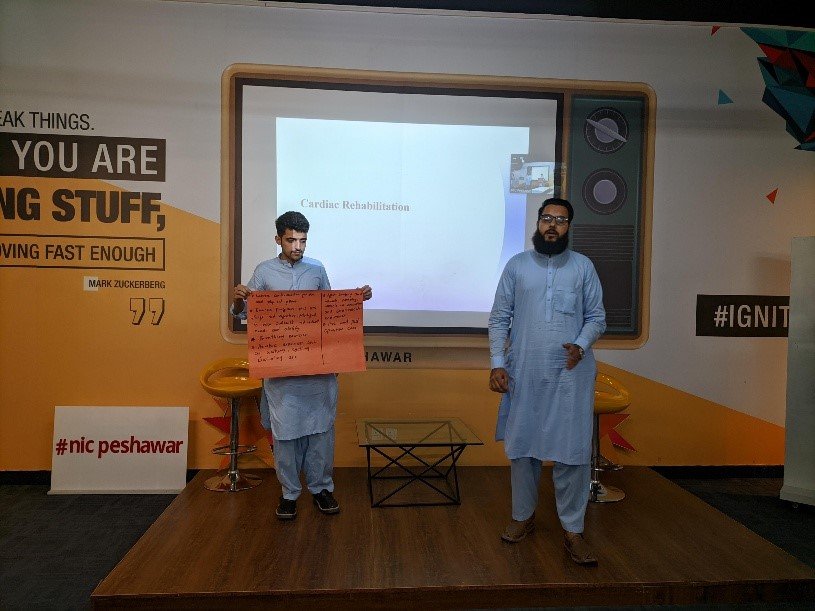
Frequently Asked Questions:
What is cardiac rehabilitation?
Cardiac rehabilitation is a comprehensive program designed to improve the health and wellbeing of patients with heart disease. It typically involves exercise, education, and psychological support, and is aimed at improving patients’ quality of life and reducing the risk of further cardiac events.
Who can benefit from cardiac rehabilitation?
Cardiac rehabilitation can benefit anyone with heart disease, including those who have had a heart attack, undergone angioplasty or bypass surgery, or have heart failure.
What are the key components of cardiac rehabilitation?
The key components of cardiac rehabilitation include exercise, education, and psychological support. Exercise is aimed at improving patients’ physical fitness and cardiac function, while education provides patients with the knowledge and skills they need to manage their condition. Psychological support helps patients cope with the emotional and psychological effects of heart disease.
What are the benefits of cardiac rehabilitation?
Cardiac rehabilitation has been shown to improve patients’ physical fitness, reduce the risk of further cardiac events, and improve patients’ quality of life. It can also help patients manage their symptoms and reduce the need for hospitalization.
Where can I learn more about cardiac rehabilitation?
There are many resources available for learning about cardiac rehabilitation, including healthcare professionals, online resources, and support groups. The American Heart Association and the British Heart Foundation are also excellent sources of information on cardiac rehabilitation.
Conclusion:
HealthNest’s one-day workshop on Cardiac Rehabilitation was a resounding success, providing participants with a comprehensive overview of the latest techniques and best practices in the field. The workshop highlighted the importance of exercise, education, and nutrition in cardiac rehabilitation, and gave participants hands-on experience in designing and implementing personalized programs for patients. The National Incubation Centre provided the perfect venue for the workshop, fostering an inspiring and collaborative atmosphere. Overall, the workshop was a testament to HealthNest’s commitment to improving healthcare education and empowering the next generation of healthcare professionals.

